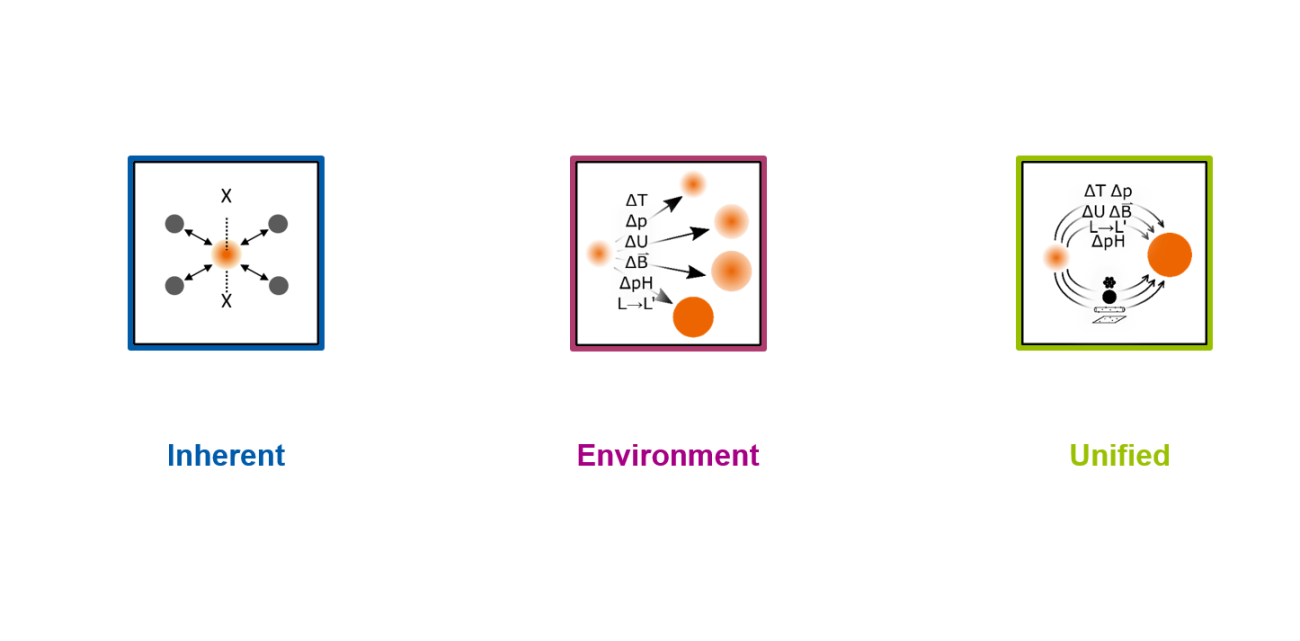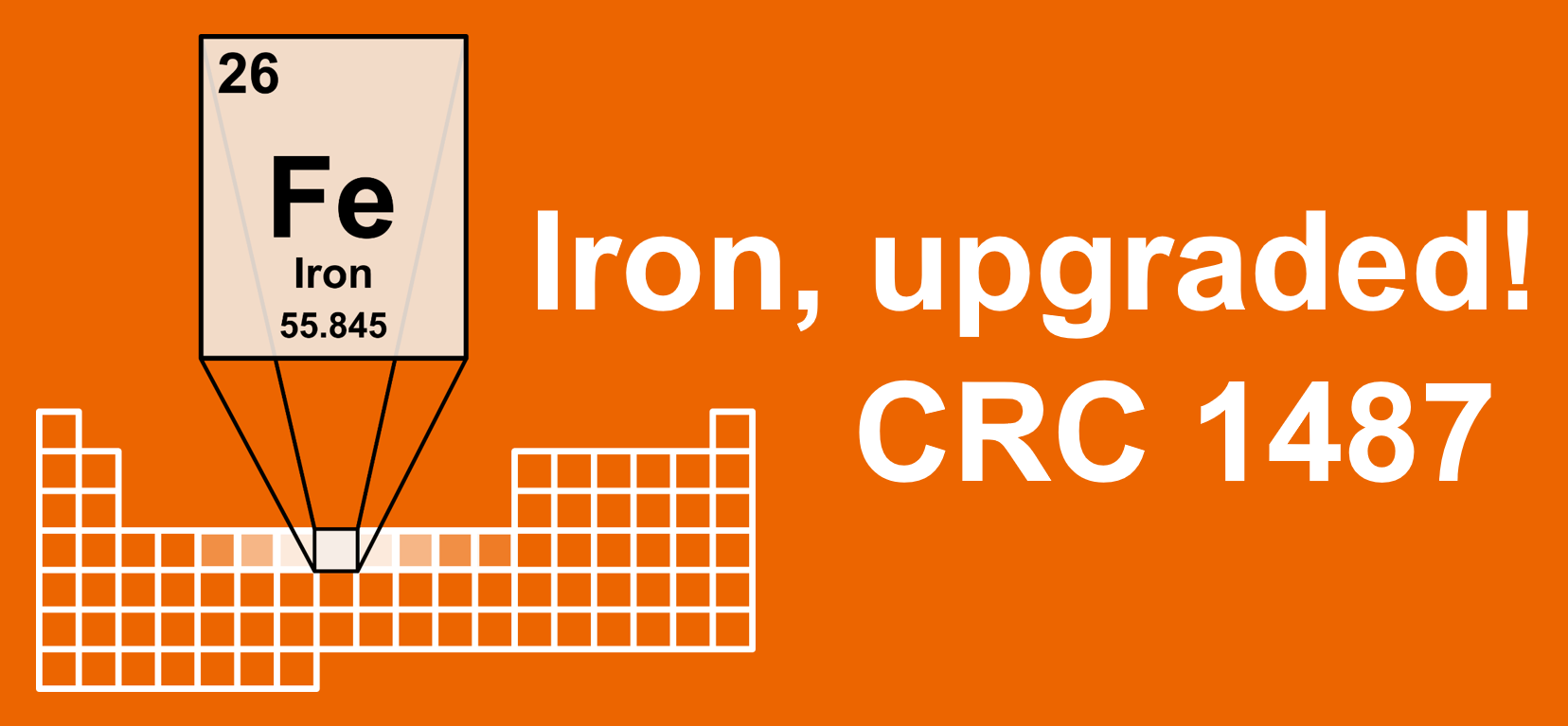| A01 | Ab initio Modelling of Fe in Molecular, Surface and Bulk Environments |
Roser Valentí Institute for Theoretical Physics Goethe-Universität Frankfurt am Main |
| A02 | Structural Dynamics of Iron Molybdate Catalysts for Alcohol Selective Oxidation Using In Situ and Operando Spectroscopies and Diffraction |
Ulrike Kramm, Christian Hess, Barbara Albert Department of Chemistry TU Darmstadt |
| A03 | Aktivitäts-StabilitätsActivity-Stability-Transport Correlations of Iron-Molybdate-Based Catalysts in Oxidative Dehydrogenation of Ethanol |
Tanja Franken, Andreas Dreizler Department of Chemistry, Department of Mechanical Engineering TU Darmstadt |
| A04 |
Activity-Stability-Transport Correlations of Iron-Molybdate-Based Catalysts in Oxidative Dehydrogenation of Ethanol |
Angela Möller Department of Chemistry Johannes Gutenberg University Mainz |
| A05 | Exploratory Syntheses of Oxoferrates and Iron Oxide Fluorides in Higher Oxidation States |
Florian Kraus Department of Chemistry Philipps-Universität Marburg |
| B01 | Tailored Force Fields of Iron Complexes for the Precise Prediction of Redox Potentials |
Vera Krewald Department of Chemistry TU Darmstadt |
| B02 | Synthesis, Physical and Catalytic Properties of Extended Macrocyclic FeN4 Complexes |
Herbert Plenio Department of Chemistry TU Darmstadt |
| B03 | Understanding Electronic Structure and Reactivity of Open-Shell Iron Compounds by Solution NMR Spectroscopy |
Markus Enders Department of Chemistry Universität Heidelberg |
| B04 | Prediction and Analysis of Magnetic Interactions in Iron Dimers |
Vera Krewald Department of Chemistry TU Darmstadt |
| B05 | Combined Operando NMR and UV-Vis Spectroscopic Monitoring of Fe-Catalysed Cross Coupling Reactions |
Christina Thiele Department of Chemistry TU Darmstadt |
| B06 | Precisely Embedded Iron/Nitrogen Catalytic Centers in N-Doped Carbon Nanotubes for Electrocatalysis |
Jörg Schneider Department of Chemistry TU Darmstadt |
| B07 | In Situ and Multi-frequency EPR for FeNC Materials and Model Complex |
Alexander Schnegg Max Planck Institute for Chemical Energy Conversion |
| B08 | Influence of Clusters and Nanoparticles on the Electronic State of Iron in Single-Atom Catalysts of Type FeNC |
Ulrike Kramm Department of Chemistry TU Darmstadt |
| C01 | Tailoring Magnetic Properties of Iron by Non-Equilibrium Interstitial Engineering in Thin Films |
Lambert Alff Department of Material Science TU Darmstadt |
|
C02 |
Interplay Between Magnetism and Crystalline Environments in Fe-Based Intermetallic Compounds |
Hongbin Zhang Department of Material Science TU Darmstadt |
|
C03 |
Toward Tetragonalisation of Bulk Fe-Based Alloys with High Defect Population |
Oliver Gutfleisch Department of Material Science TU Darmstadt |
|
C04 |
In Situ Monitoring of Iron-Catalysed Reactions by High-Field NMR Spectroscopy |
Gerd Buntkowsky Department of Chemistry TU Darmstadt |
|
C05 |
Influence of Promoters and Poisons on Iron (Alloy) Nanoparticles for the Selective Hydrogenation of Alkynes to Alkenes |
Marcus Rose Department of Chemistry TU Darmstadt |
|
C06 |
Influence of the Coordination Environment of Fe-Based Materials on the Electrochemical Stability |
Marc Ledendecker Department of Chemistry TU Darmstadt |
|
C07 |
Influence of Tetrele Atoms as Ligands on the Optical, Magnetic and Redox Beauvoir of Fe |
Rolf Schäfer Department of Chemistry TU Darmstadt |
|
C08 |
Electronic Structure and Redox Properties of Iron in Different Environments Studied by Valence and Core Level Spectroscopies |
Jan Philipp Hofmann Department of Material Science TU Darmstadt |
|
Ö |
Public Relations and Outreach |
Markus Prechtl Department of Chemistry, Didactics of Chemistry TU Darmstadt |
|
S |
Preparation of Reference Compounds |
Barbara Albert, Kathrin Hofmann Department of Chemistry TU Darmstadt |
|
Z |
Central Tasks of the Collaborative Research Centre
|
Ulrike Kramm Department of Chemistry TU Darmstadt |


